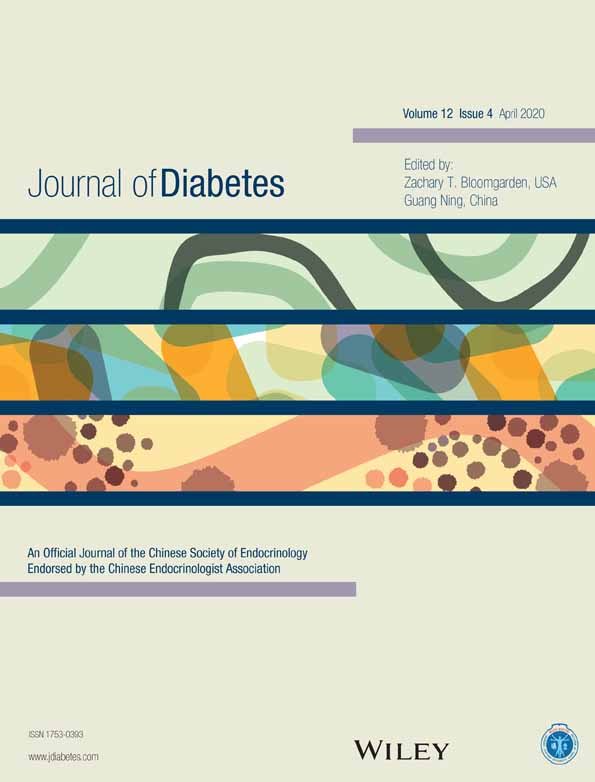Depressive symptoms mediate the relationship between sleep disturbances and type 2 diabetes mellitus
抑郁症状介导睡眠障碍与2型糖尿病的关系
Funding information: Max Stern Yezreel Valley College, Emek Yezreel, Israel
Abstract
enBackground
The current study aimed at examining whether individuals diagnosed with type 2 diabetes mellitus (T2DM) have more severe sleep disturbances compared to individuals who are healthy or have prediabetes and whether depressive symptoms mediate the relationship between sleep disturbances and having T2DM.
Methods
T2DM patients (n = 107) were compared to individuals with prediabetes (n = 48) and healthy individuals (n = 154) regarding the severity of depressive symptoms, measured via the Beck Depression Inventory-II (BDI-II), and sleep disturbances, measured via the Mini Sleep Questionnaire (MSQ). Mediation analysis examined whether depressive symptoms mediated the relationship between sleep disturbances and T2DM.
Results
Compared to healthy individuals and individuals with prediabetes, T2DM patients had more depressive symptoms and higher levels of insomnia, hypersomnia, and overall more sleep disturbances. The prediabetes group did not differ from the healthy control group on these measures, and these groups were thus combined for further analysis. Sleep disturbances were correlated with severity of depressive symptoms (r =0.43). After controlling for age, gender, and ethnic background, both severity of sleep disturbances (odds ratio [OR]: 1.04; 95% CI: 1.01-1.07, P <.001) and severity of depressive symptoms (OR: 8.54, 95% CI: 3.37-21.69, P <.001) predicted T2DM. Depression symptoms mediated the relationship between sleep disturbances and T2DM, whereas the direct relationship between sleep disturbances and T2DM was nonsignificant.
Conclusions
The findings imply that sleep disturbances may contribute to the development and progression of T2DM by promoting depressive symptoms. Thus, treatments for the emotional distress associated with sleep disturbances may help reduce the risk for T2DM and the progression of the disease.
摘要
zh背景
本研究旨在探讨2型糖尿病(T2DM)个体是否比健康人或糖尿病前期者有更严重的睡眠障碍, 以及抑郁症状在睡眠障碍与T2DM之间关系中的作用。
方法
将107例T2DM患者与48例糖尿病前期患者及154例健康人进行比较, 采用Beck抑郁量表(BDI-II)测量抑郁症状的严重程度, 迷你睡眠问卷(MSQ)测量睡眠障碍。通过中介分析检验抑郁症状是否介导了睡眠障碍与T2DM之间的关系。
结果
与健康人和糖尿病前期患者相比, T2DM患者有更多的抑郁症状, 更多的失眠, 多眠, 以及总体上更多的睡眠障碍。糖尿病前期组在这些指标上与健康对照组没有不同, 因此将这两组结合起来进行进一步分析。睡眠障碍与抑郁症状严重程度相关(r=0.43)。在控制了年龄、性别和民族背景后, 睡眠障碍的严重程度(OR:1.04;95%CI:1.01~1.07, P<0.001)和抑郁症状的严重程度(OR:8.54, 95%CI:3.37~21.69, P<0.001)均可预测T2DM。抑郁症状在睡眠障碍与T2DM的关系中起中介作用, 而睡眠障碍与T2DM的关系不显著。
结论
睡眠障碍可能通过促进抑郁症状而参与T2DM的发生发展。因此, 对与睡眠障碍相关的情绪困扰的治疗可能有助于降低患T2DM的风险和疾病的进展。
CONFLICT OF INTEREST
The authors have no conflicts of interest to report.




